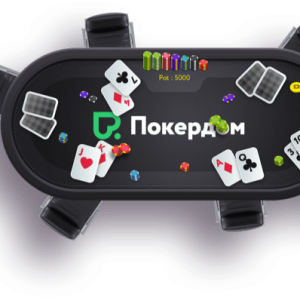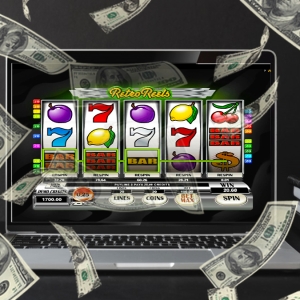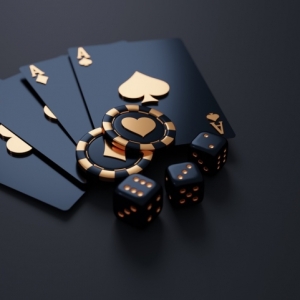Online gambling has evolved dramatically in recent years, and few formats highlight that change more clearly than crash-style betting. While slots, roulette, and blackjack still dominate the conventional scene, the arrival of the crypto crash game experience has created a new kind of player mindset. The difference isn’t just in rules and mechanics—it’s in emotions, timing, strategy, risk approach, and session dynamics. Understanding how user behaviour shifts between these formats reveals why crash games attract a different style of engagement.
Instant Decision-Making vs Passive Play
Traditional casino games like slots involve minimal decision-making beyond choosing bet size and spinning. Even table games, though strategic, often follow slow-paced rounds where outcomes play out after cards are drawn or wheels stop spinning.
Crash betting flips this model completely. Players make one crucial decision in every round: when to cash out. That timing component demands immediate involvement, reaction speed, and instinct. The pressure to click before the multiplier drops creates a sense of responsibility for the outcome, which changes how players think and behave during a session.
Emotional Intensity Over Extended Rhythm
Traditional games generally provide a rhythm of repeated rounds that last longer and feel familiar. Even when players lose, the losses occur in predictable increments and at a slower pace.
In crash games, the emotional arc is compressed. Every round is a high-tension moment where the win or loss hinges on a split second. The adrenaline spike comes quickly and repeatedly, encouraging risk-taking and rapid decisions. Because the outcome is abrupt, the emotional impact is sharper—both in victory and defeat.
Perceived Control and Responsibility
Slots and roulette rely almost entirely on chance once the bet is placed. Players often accept this lack of control and allow randomness to dictate the pace.

With crash games, the belief in timing-based control is strong. Players feel responsible for choosing when to exit. Even though outcomes are still random, that moment of agency changes behaviour. When someone wins or loses, they don’t blame a machine or dealer—they reflect on whether they exited too early or too late.
This creates more self-analysis and replay thinking. Traditional game players often move on to the next round without much reflection. Crash players replay the moment mentally, which shapes their next decision.
Faster Betting Cycles and Shorter Sessions
A round of crash betting typically lasts just a few seconds. That means players place more wagers in a shorter time frame. In contrast, blackjack hands, roulette spins, and some slot bonus rounds take more time to resolve.
Because of this rapid flow, crash players may adjust stakes more often, react to short streaks immediately, and accumulate outcomes quicker—good or bad. Some sessions end earlier because wins or losses escalate faster than traditional formats allow.
The Attraction of High Volatility
Many traditional casino players lean toward moderate volatility. Slots with frequent small wins and table games with structured bets feel more predictable.
Crash players, on the other hand, often embrace volatility intentionally. Watching the multiplier climb encourages hope for outsized gains. Even cautious users are drawn into occasional bigger risks when they see others cash out at high levels.
This behaviour contrasts with traditional players who typically set a bet and wait passively. Crash bettors constantly re-evaluate risk each round based on speed, outcome history, and their emotional state.
Social and Observational Influence
In crash games, users see other players' exits in real-time. Watching someone cash out early or wait too long influences decision-making, even subconsciously. The shared experience builds a competitive or comparative dimension.
Traditional casino games may involve others at the table, but communication is slower, and outcomes aren’t simultaneous across all players. In crash formats, large groups bet together and experience the multiplier in a unified moment. This leads to herd behaviour, mimicry, or rebellion against common trends.
Loss-Chasing and Momentum Thinking
When a slot round goes poorly, players might change the stake or walk away. In table games, a bad hand simply resets the process.
Crash players often react to loss differently. Because each round feels tied to timing rather than pure luck, they may believe a better exit is just one round away. If they crashed at 1.1x, they might stay in longer next time to regain losses, or exit at the same level believing the earlier crash was unlucky timing.
This creates a loop of reactive decision-making, where users adjust based on emotional momentum rather than slow, structured tactics.
Short-Term Strategy vs Pattern Play
Traditional games sometimes foster long-term systems, like blackjack counting or roulette betting models. These strategies unfold gradually and rely on repeated sequences.

In crash gameplay, strategy evolves round by round. Some players set auto exits at low multipliers to accumulate small consistent wins. Others chase high-risk runs after observing a string of early crashes. The pace encourages improvisation rather than long-term structure.
Those who treat crash betting methodically still must adapt frequently due to its unpredictability and lack of fixed patterns.
Crypto Integration and Value Perception
Because many crash platforms operate with digital currencies, users may perceive their balance differently than fiat casino players. Crypto’s volatility, ease of transfer, and smaller fractional bets can lead to quicker decisions and less hesitation.
In traditional casinos, physical money or fixed account balances feel more concrete. In a crypto-based crash environment, a player might treat a fraction of a coin as a throwaway bet, especially when chasing multipliers. This shift in value perception alters risk appetite.
Engagement Style and Session Goals
Players of roulette, baccarat, or slots often sit down with expectations of steady play, entertainment, or occasional bonuses. Their mindset revolves around time spent rather than constant micro-outcomes.
Crash players engage differently. Many log in for short bursts, aiming for quick wins or testing timing theories. The excitement curve encourages impulsive entry and exit—often without the intent to stay long.
The game format itself supports this. There’s no need to wait for a dealer, spin, or card count. Rounds begin continuously, making it easy to jump in and out at any moment.
A Different Kind of Player Experience
Crash-style betting has introduced a distinct behavioural model to online wagering. While traditional gaming revolves around rhythm, patience, and structured variety, crash games encourage immediacy, emotional spikes, and high-speed decisions. Users become active participants rather than passive observers, and the blend of timing control, crypto integration, and communal rounds reshapes their actions from the first click.
These contrasts explain why crash betting attracts both new audiences and experienced gamblers looking for intensity. The psychology, pace, and structure produce a style of play that stands apart from the conventional casino landscape.






